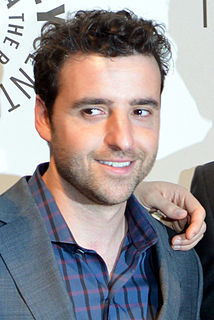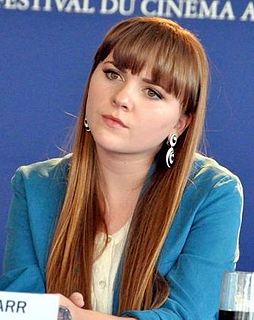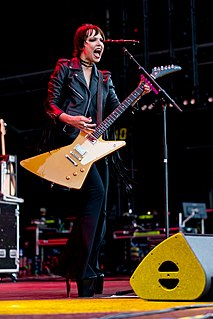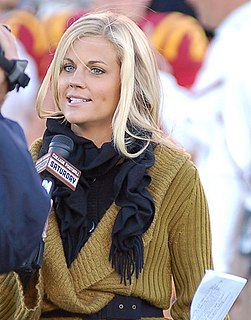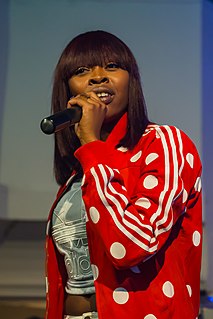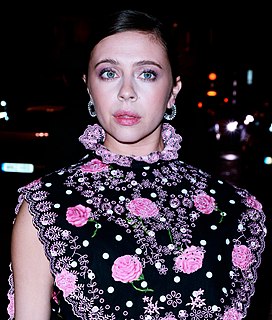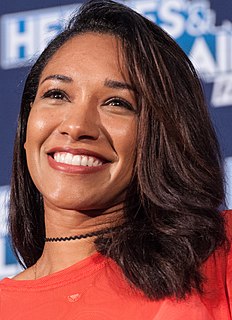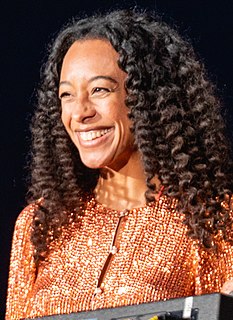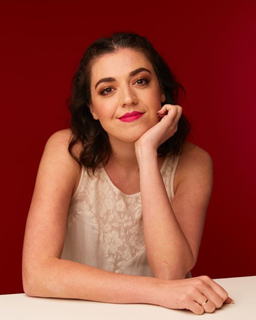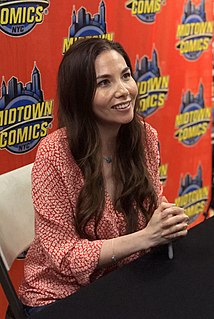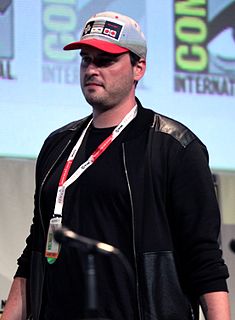A Quote by David Krumholtz
[10 Things I Hate About You] keeps popping up, and it's become a go-to film specifically for adolescent girls who are trying to find their voice, which is a really important thing, and the characters in the film, the two sisters played by Julia Stiles and Larisa Oleynik, they became archetypes for young teenage girls to look up to and emulate.
Quote Topics
Related Quotes
You couple that with how I looked when I was younger, and growing up... The voice is not quite breaking. It's awful. No, I don't enjoy that at all. But that's one of the things people love and find so endearing about the Harry Potter series, and why they've lasted so long. Because people have grown up with us, and they care about the characters. They're not just some characters in the film, they're people you can relate to, and you care about, and you grew up with, and when they die in this film, people feel it!
Women became almost our bigger audience. Teenage girls went crazy for my movie. I saw it. I went to theatres all over and there were gangs of girls going and screaming. There were kids that were 10 or 11 years old when September 11 happened. They've been told for years they're going to get killed, they're going to get blown up. Every time you go on an airplane, X-ray your shoes because you're going to get blown up. Terror alert orange, don't travel. So, people have a reaction and they want to scream. Horror movies have become the new date movie.
I would say any film can be called feminist that has female characters who have agency in their life, that are in charge of their fate or do important things or take up half the space. I would consider a film feminist, I don't care what it's about, but if the cast was gender balanced, where it would be just as likely that the boss or the best friend or whoever was female. It's really as simple as showing women being in charge of their destiny and giving female characters a voice.
My fan interactions are really, really special. They're one of the highlights of this job for me, because I go out and do these conventions all across the world and meet all of these young girls - girls that look like me, and girls that look nothing like me, that are excited and empowered to see a woman of color on television. I'm really grateful for the fans that I have.
The important thing about doing art and writing is that we are using our voices and using them really, really loudly. And to any girls or young women who want to write comics, I tell them, "You have to use your voice. You have to take up space." We have to fight to be heard. No one else is going to fight for us.
'Fast Times At Ridgemont High' is one of my favorite movies; it's a film that's a human comedy, it's a drama, and the characters all, in a way, fit the teenage archetypes, but they don't become stereotypes because each of the actors brought their own presence and their own personality to the screen.
With Fincher, you can take chances and try things. And what happens is that any pretension and preparation you've done, all the square, intellectual work, you can't keep that up for 40 takes. It breaks down, and new things start popping up. This, for me, is the most exciting thing about film-making.
